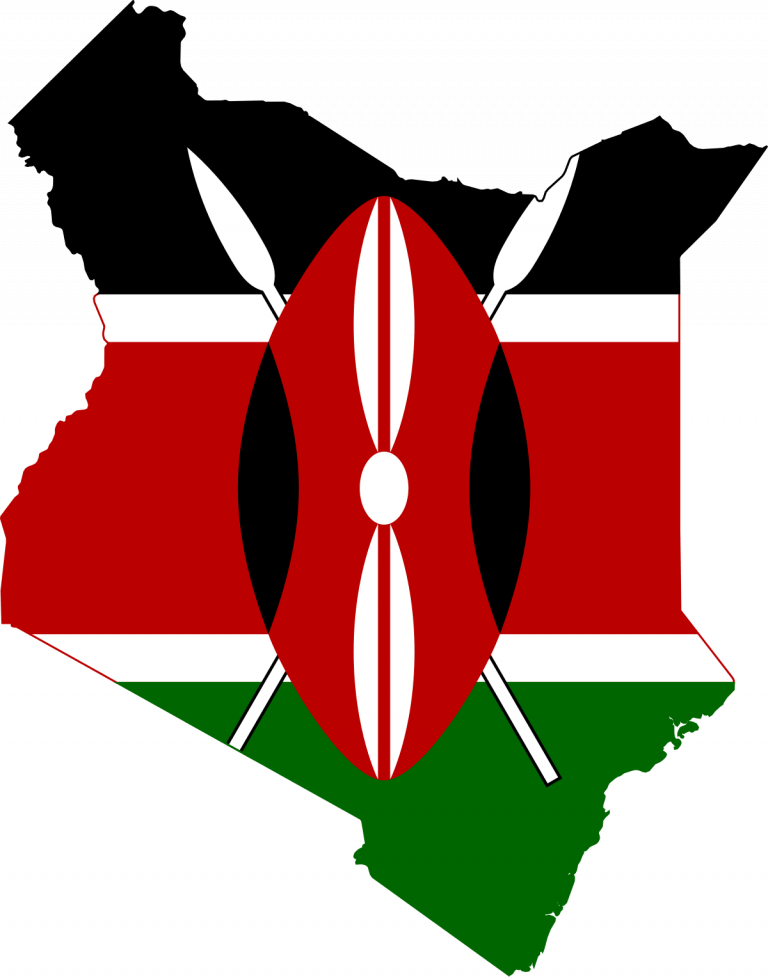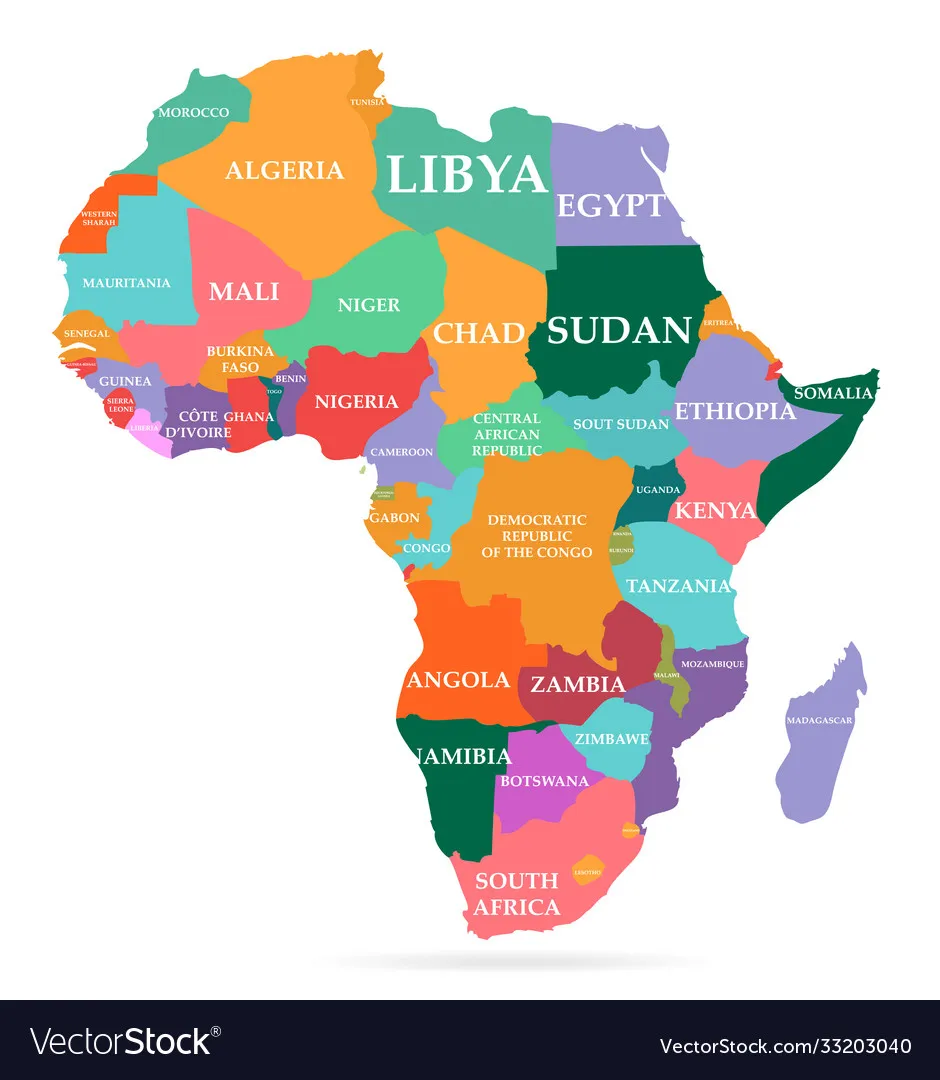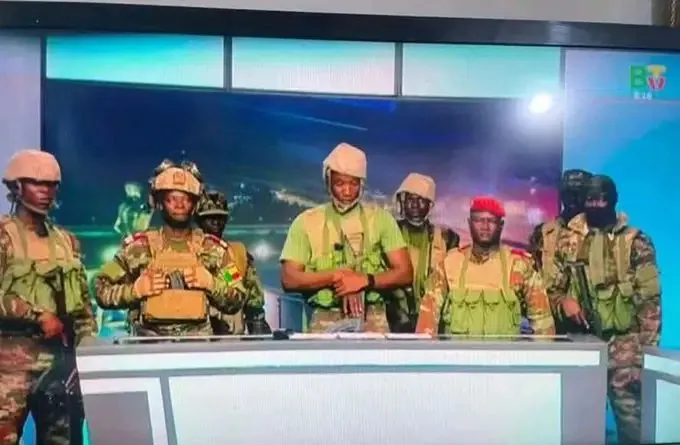Headline
Kenya Grants Visa-free Entry To all Africans, Excludes Two Countries

Kenya has announced it will allow citizens from nearly all African countries to visit without prior authorisation, according to a new directive by the cabinet.
Previously, Kenya required visitors to apply for an Electronic Travel Authorisation (ETA) online, a system criticised as a “visa under another name.”
On Tuesday, the cabinet announced the ETA would be dropped for “all African countries except Somalia and Libya—due to security concerns.”
READ ALSO: Kenya’s Deputy President Faces Impeachment Over Corruption
The government explained the move is part of “efforts to support open skies policies and tourism growth” while promoting “regional integration and ease of travel.”
Despite its visa-free policy, Kenya ranked 46th out of 54 nations in the 2024 Africa Visa Openness Index, dropping 17 places.
Under the updated system, citizens from most African countries can stay in Kenya for up to two months without an ETA. Members of the East African Community—Uganda, Tanzania, Rwanda, and Burundi—can stay for up to six months, in line with the bloc’s policy. An enhanced process will also allow travellers to receive approvals instantly, with a maximum processing time of 72 hours.
READ ALSO: Tight Security In Kenya Ahead Of New Protests
Before the ETA’s introduction, visitors from over 40 countries, including many in Africa, could enter Kenya freely. Now, all travellers must apply and pay $30 for an ETA at least three days before travel unless exempted.
The ETA system has faced criticism for complicating travel and discouraging potential visitors. The government defends it as necessary for “pre-screening, strengthening security, and streamlining passenger processing.” Kenya has faced significant security threats from al-Shabab militants based in Somalia, prompting tightened border measures.
Guidelines to improve the “traveller experience at Kenyan airports” are expected within a week, though no implementation date for the new policy has been announced.
Headline
US Congressman Meets Benue Leaders On ‘Genocidal Campaign By Fulani’

United States Congressman, Rep Riley Moore, has held talks with traditional and religious leaders in Benue State concerning what he described as an ongoing genocidal campaign by Fulani in the state.
Moore and other delegates from the US government are in Nigeria to meet with Christians who have suffered persecution and attacks by Jihadists.
He has so far met with Catholic Bishop Wilfred Anagbe of the Diocese of Makurdi, Catholic Bishop Isaac Duru of Katsina-Ala Diocese, and his Royal Highness, Tor Tiv James Ioruza.
Moore, who represents West Virginia’s 2nd District in Congress, said they discussed “the ongoing genocidal campaign by the Fulani in Benue State.”
READ ALSO:US Congressman Makes Shocking Revelation, Reveals How USAID Funded Boko Haram, Other Terror Groups
“Our brothers and sisters in Christ will no longer suffer in silence. The United States has heard your cries, and we are working diligently toward solutions,” he added.
The meeting took place five months after about 200 residents of Yelwata in Benue State were massacred by terrorists, with many injured and displaced.
Moore has been acting on directives issued by US President Donald Trump, who threatened months back that if the government does not stop the killing of Christians in Nigeria, the US might have to invade the country “guns-a-blazing”.
Trump’s words have led to a cooperation between Nigeria and the US, which Moore confirmed, saying that “there is an openness and willingness on the part of the Nigerian government to work with the United States to tackle these critical issues. Now, that openness has to translate to concrete action.”
READ ALSO:Trump’s Military Threat To Nigeria Reckless – US Congresswoman
He went on to thank President Bola Tinubu for rescuing the 100 Catholic school children abducted recently by terrorists. He described the action as a positive demonstration of the government’s growing response to the security situation, adding that Nigeria has shown its commitment to the emergency declaration issued by President Tinubu.
“The US’ sense of urgency on our concerns was positively received. I feel that a cooperative security framework is within sight. The now-established joint task force between Nigeria and the US is a great example,” Moore added.
Meanwhile, Nigeria’s National Security Adviser, Nuhu Ribadu, has expressed confidence that the engagement with the US delegation in Nigeria “will deepen trust, collaboration, and shared commitment to peace and security.”
The delegation included Rep Mario Díaz-Balart, Rep Norma Torres, Rep Scott Franklin, Rep Juan Ciscomani, and Rep Riley M. Moore.
It is not yet clear whether the delegation will also visit other states in the Middle Belt region of Nigeria, which are also facing terrorist attacks.
Headline
Africa Coups: 10 In Five Years

A military coup attempt in Benin Sunday adds to a list of such incidents on the turbulent African continent.
A group of soldiers announced that they had ousted President Patrice Talon, although his entourage said he was safe and the army was regaining control.
Here is a recap of the 10 successful coups in Africa in the last five years:
Mali
Malian President Ibrahim Boubacar Keita is overthrown by five army colonels in August 2020.
In May 2021, the Malian military takes over from the civilian leaders of an interim government.
Colonel Assimi Goita, who led both coups, is sworn in as transitional president.
After promising to hold elections in February 2024, the military puts them off indefinitely, pointing to the jihadist violence plaguing the country.
READ ALSO:Guinea-Bissau Military Takeover Is ‘Ceremonial Coup’ – Jonathan
In July 2025, Goita approves a law granting himself a five-year presidential mandate, renewable without election.
In September jihadists launch a fuel blockade, weakening the ruling junta.
Guinea
On September 5, 2021, mutinous troops led by lieutenant-colonel Mamady Doumbouya take over in Guinea, arresting President Alpha Conde.
Doumbouya in early November 2025 submits his candidacy ahead of December 28 elections that are meant to restore constitutional order.
Sudan
After weeks of tension between the military and civilian leaders who had shared power since the ousting of dictator Omar al-Bashir, the armed forces led by army chief Abdel Fattah al-Burhan stage a new coup on October 25, 2021.
Since April 2023 war has raged between the regular armed forces led by Burhan and the paramilitary Rapid Support Forces, led by his former deputy Mohammed Hamdan Daglo.
READ ALSO:Guinea-Bissau Coup: FG Gives Update On Ex-President Jonathan
The conflict has so far killed tens of thousands of people and created one of the world’s worst humanitarian crises.
Burkina Faso
Burkina Faso underwent two military coups in 2022.
In January that year mutinous soldiers led by Lieutenant-Colonel Paul-Henri Sandaogo Damiba arrest President Roch Marc Christian Kabore.
Then in September army officers announce they have dismissed Damiba. Captain Ibrahim Traore becomes transitional president, but elections he promised do not materialise. In May 2024 the junta authorises him to stay for another five years in a country wracked by Islamist violence.
Niger
On July 26, 2023, members of the presidential guard overthrow Niger’s President Mohamed Bazoum, elected in 2021. General Abdourahamane Tiani, head of the presidential guard, takes over.
In March 2025, the junta extends by at least five years its transitional leadership of the country which is plagued by jihadist violence.
READ ALSO:Coup In Guinea-Bissau? Soldiers Deployed Near Presidential Palace After Gunfire
Gabon
In Gabon, ruled for 55 years by the Bongo family, army officers on August 30, 2023 overthrow President Ali Bongo Ondimba, less than an hour after he is declared winner of an election the opposition says was fraudulent.
General Brice Oligui Nguema is named transitional president.
In April 2025 he is elected president with 94.85 percent of the vote. He is sworn in on the basis of a new constitution approved by referendum during the transition.
Madagascar
In October 2025, the military ousts Madagascar’s president Andry Rajoelina and takes power following weeks of “Gen Z” anti-government protests.
Army colonel Michael Randrianirina is sworn in as Madagascar’s new president, promising elections within 18 to 24 months.
Guinea-Bissau
In November 2025, military officers in Guinea-Bissau declare they have “total control” of the coup-prone west African country, closing its borders and suspending its electoral process three days after general elections.
The military says a command “composed of all branches of the armed forces” is taking over the leadership of the country “until further notice”.
Headline
Benin Republic Presidency Breaks Silence On ‘Military Takeover’

Benin Republic military
Military personnel in Benin on Sunday said they had ousted President Patrice Talon, but the Presidency said he was safe and the army was regaining control.
Talon, 67, a former businessman known as the “cotton king of Cotonou,” is due to hand over power in April next year after 10 years in office marked by strong economic growth and rising jihadist violence.
West Africa has seen several coups in recent years, including in Niger, Burkina Faso, Mali, Guinea, and most recently Guinea-Bissau.
Early on Sunday, soldiers calling themselves the “Military Committee for Refoundation” (CMR) said on state television that they had met and decided that “Mr Patrice Talon is removed from office as president of the republic.”
READ ALSO:Guinea-Bissau Military Takeover Is ‘Ceremonial Coup’ – Jonathan
The signal was cut later in the morning.
Shortly after the announcement, a source close to Talon told AFP the president was safe.
“This is a small group of people who only control the television. The regular army is regaining control. The city (Cotonou) and the country are completely secure,” they said.
“It’s just a matter of time before everything returns to normal. The clean-up is progressing well.”
A military source confirmed the situation was “under control” and said the coup plotters had not taken Talon’s residence or the presidential offices.
READ ALSO:Coup: ECOWAS Suspends Guinea-Bissau
The French Embassy reported on X that “gunfire was reported at Camp Guezo” near the president’s official residence in the economic capital and urged French citizens to remain indoors.
Benin has a history of coups and attempted coups.
Talon, who came to power in 2016, is due to end his second term in 2026, the constitutional maximum.
The main opposition party has been excluded from the race to succeed him, leaving the ruling party to compete against a so-called “moderate” opposition.
Talon has been praised for driving economic development but is often accused of authoritarianism.
(AFP)

 Metro3 days ago
Metro3 days agoEdo: How Pastor Hypnotised My Daughter, Made Her Abandoned NNPCL- Mother

 News4 days ago
News4 days ago9 Common Resume Mistakes Graduates Make – And How To Avoid Them

 Entertainment5 days ago
Entertainment5 days agoIt Is Getting Out Of Hand – Tuface Cries Out Amid Marital Crisis

 News3 days ago
News3 days agoOba Of Benin Suspends Priest, Reaffirms Appointment Of Okao

 News4 days ago
News4 days agoTinubu Submits Fresh Ambassadorial List To Senate, Ibas, Dambazau Make Cut

 Entertainment5 days ago
Entertainment5 days ago‘We’re Coming To Save You’ – Teni On 2Face’s Distress Call

 Sports3 days ago
Sports3 days agoJUST IN: Full Draw For 2026 World Cup Group Stages Confirmed

 Entertainment5 days ago
Entertainment5 days agoMy Marriage Ended Amicably – Comedian Sabinus Confirms Split From Wife

 News4 days ago
News4 days agoEdo Journalist Hospitalised After Being Attacked By Political Thug

 Metro3 days ago
Metro3 days agoMy Husband Felt Insecure After I Got A Job, Accused Me Of Infidelity —Wife


























